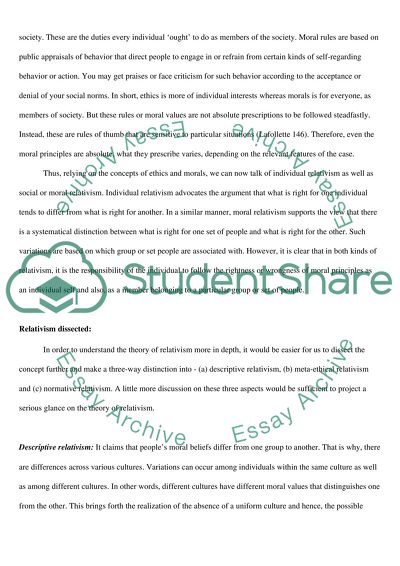Cite this document
(Ethical Relativism Assignment Example | Topics and Well Written Essays - 2500 words, n.d.)
Ethical Relativism Assignment Example | Topics and Well Written Essays - 2500 words. https://studentshare.org/ethics/1551645-philosophy-contemporary-ethical-theory2
Ethical Relativism Assignment Example | Topics and Well Written Essays - 2500 words. https://studentshare.org/ethics/1551645-philosophy-contemporary-ethical-theory2
(Ethical Relativism Assignment Example | Topics and Well Written Essays - 2500 Words)
Ethical Relativism Assignment Example | Topics and Well Written Essays - 2500 Words. https://studentshare.org/ethics/1551645-philosophy-contemporary-ethical-theory2.
Ethical Relativism Assignment Example | Topics and Well Written Essays - 2500 Words. https://studentshare.org/ethics/1551645-philosophy-contemporary-ethical-theory2.
“Ethical Relativism Assignment Example | Topics and Well Written Essays - 2500 Words”. https://studentshare.org/ethics/1551645-philosophy-contemporary-ethical-theory2.


